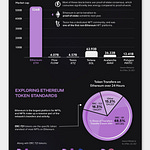Heads Up
This Monday (30 August), subscribers to the Kitchen Sync with “Founder” status will join me for a private Zoom call. We’ll talk about the latest issues as well as engage in a bit of Q&A — it’s going to be great. Founders get to participate in these calls every month and you can too. Simply click the button below to subscribe and to join the conversation.
Tech Terms
SQL Injection (“sequel”· injection) — Structured Query Language (SQL) is a programming language used to manage databases. SQL injection targets vulnerable sites and uses malicious code to command the server to provide information it usually would not.
Biden Meets with CEOs on Cybersecurity
What’s New: The President met with the leaders of Apple, Google, JPMorgan, Microsoft, and others this week and asked them to do more on cybersecurity threats.
Why This Matters: The meeting is part of Biden’s broader response effort in the wake of several cybersecurity threats — including the SolarWinds, Microsoft Exchange, and Dominion Oil attacks.
Key Points:
The meeting was held on Wednesday and also included representatives from cybersecurity insurance providers and NGOs.
“The reality is most of our critical infrastructure is owned and operated by the private sector, and the federal government can’t meet this challenge alone,” Biden said in his remarks before the summit. “You have the power, capacity and responsibility, I believe, to raise the bar on cybersecurity. Ultimately we’ve got a lot of work to do.”
The White House describes the meeting as the beginning of on ongoing public-private effort that will develop new cybersecurity partnerships and standards aimed at building secure technologies in the future while securing legacy technologies now.
According to a White house release, Microsoft will provide $150 million worth of security help to government agencies; Google is donating $100 million to help organizations secure open-source software; Amazon will issue free security tokens for users of Amazon Web Services; and IBM will provide cybersecurity training for 150K people.
What I’m Thinking: The event was optics and politics — but it did signal that cybersecurity is a top priority for the administration. The services and resources being donated by the companies, however, is a welcome infusion. (We’ll see about the details.) It’s also good to see the insurance folks there too because by 2025, it’s predicted that …
The estimated value of cyber insurance premiums worldwide will be $20 billion;
75% of organizations globally will purchase cyber insurance; and,
Cyber incidents will be the third largest overall risk to global business.
Misleading Sites Drive 1/5 Facebook Engagement
What’s New: A new report claims that, while Facebook users are engaging less with content from outlets who routinely publish false information, engagements with publications that gather and present information “irresponsibly” is setting records.
Why This Matters: From the report:
“The change demonstrates that Facebook and Twitter have the tools to address disinformation. However, outlets that gather and present information irresponsibly without publishing false content present a special challenge to the platforms.”
Key Points:
The report was authored by Adrienne Goldstein at the German Marshall Fund.
The author defined “irresponsible” sources using the news-rating service NewsGuard, saying these sites “distort or misrepresent information to make an argument or report on a subject.”
“These are the kinds of sites that will cherry pick anecdotes and are giving rise to vaccine hesitancy and other kinds of conspiracy theories,” said Karen Kornbluh, director of the German Marshall Fund’s Digital Innovation and Democracy Initiative, a public policy think tank.
Such sources include the Daily Wire, TMZ, the Epoch Times, and Breitbart.
At publication, Facebook interactions with “irresponsible” content constituted more than one-fifth of all interactions with U.S.-based sites, a five-year high.
What I’m Thinking:
A huge portion of our media could be called “irresponsible.” Reporting that selectively or misleadingly shapes the story seems to be the norm, not the exception. This is one of the key drivers of platforms like Substack and this newsletter — people are looking for trusted information sources.
That said, there are some egregious actors out there. As this and several other reports demonstrate, outrageous and bias-confirming headlines drive user engagement, which in turn drives ad sales and profits. This constitutes a type of “value chain” from the consumer to the publisher, from the publisher to the platform, and from the platform to the ad purchasers. Every one of these stakeholders is incentivized to look the other way on misleading content.
Engagement with totally “fake news,” however, is declining. Platforms like Facebook are getting better at cracking down on black-and-white cases of straight-up lies and that’s a good thing. Engagement with these sites is down to 3% of shares on Facebook.
But, we’ve still got big challenges: The information environment continues to be complex and our society is losing its shared sense of — and commitment to — the truth. This environment might be more “engaging,” but it’s certainly not good for a healthy society.
Intel Will Help DoD Build Domestic Chips
What’s New: Intel announced on Monday that it will join several other companies in helping the Pentagon to design and build cutting-edge microchips, according to the Wall Street Journal.
Why This Matters: The agreement is part of the government’s Rapid Assured Microelectronics Prototypes — Commercial program (RAMP-C), which aims to foster U.S.-based microelectronics development that are critical to defense and national security.
Key Points:
The contract is going to Intel’s new stand-alone Foundry Services company which was established earlier this year.
The RAMP-C program includes several other companies, including Cadence Design Systems, International Business Machines, and Synopsys.
“One of the most profound lessons of the past year is the strategic importance of semiconductors, and the value to the United States of having a strong domestic semiconductor industry,” said Randhir Thakur, president of Intel Foundry Services.
Intel says it will be investing more than $20 billion for two new chip factories in Arizona, which the company says will begin construction later this year.
The Biden defense budget for 2022 calls for $2.3 billion to be spent on microelectronics efforts deemed “critical” for national security.
What I’m Thinking:
The U.S. dominates chip design but lags in “fabrication.” There are a number of reasons for this, but chief among them is the heavy government subsidies many foreign “fabs” receive — particularly in Asia.

Chips are now seen as a critical national resource that must be secured. Simply stated: If emerging technologies are shaping the global security landscape, the design, fabrication, and delivery of microelectronics will shape who has access to these shaping technologies and who can apply them most effectively.
One look at the chart below and you’ll understand Western urgency around domestic fabrication capacity (spoiler: China could dominate manufacturing in ten years).
Let’s Get Visual
Nerd Humor
Quick Clicks
Quick Plug
On Wednesday, I joined David French on The Remnant podcast, where we discussed Afghanistan, Cyberwar, and “Big Tech.” You can listen to it here. I also highly recommend all of the other good work being done by David and the Dispatch team, which you can checkout by clicking the button below.
That’s it for this Friday Brief. Thanks for reading, and if you think someone else would like this newsletter, please share it with your friends and followers. Have a great weekend!



















Share this post